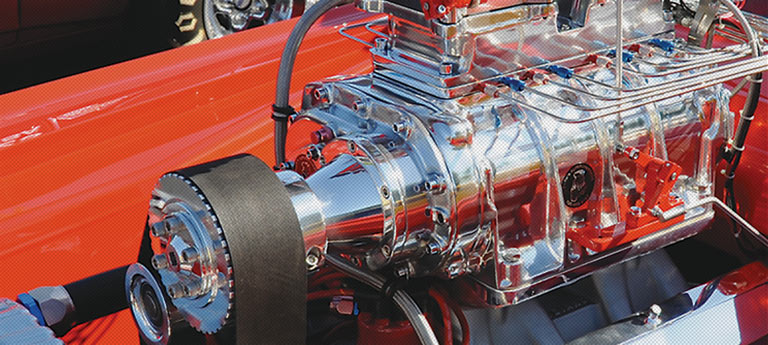Page 3 of 5
Re: manifold pressure
Posted: Wed Feb 02, 2022 5:41 am
by Squaretail
The real question is why could KITT only use his turbo-boost once per episode? I suspect it wasn't really a turbo.
Re: manifold pressure
Posted: Wed Feb 02, 2022 3:53 pm
by Colonel
I have a theory about this.
Hasselholf was HUGE in Germany. This is no coincidence - they loved his
singing albums. Even better than Bill Shatner.
Now in WWII the German fighters used nitrous oxide which could only be used
sparingly until it was all gone due to the limitation on the size of the tanks - just
like KITT!
https://en.wikipedia.org/wiki/GM-1
This explains it. Stop laughing.

Re: manifold pressure
Posted: Wed Feb 02, 2022 5:14 pm
by Squaretail
Colonel wrote: ↑Wed Feb 02, 2022 3:53 pm
Now in WWII the German fighters used nitrous oxide which could only be used
sparingly until it was all gone due to the limitation on the size of the tanks - just
like KITT!
https://en.wikipedia.org/wiki/GM-1
How do you know KITT wasn't using MW-50?

I sort of find it a bit fascinating how turbos and supers seemed to be competitive back then, and sometimes used in tandem, but turbos seemed to have won out. But if you really want to be cool, you need to run an intercooler. Pun intended.
Re: manifold pressure
Posted: Wed Feb 02, 2022 7:06 pm
by Colonel
Turbos are great if your RPM never varies (aircraft) but I personally
prefer a supercharger where throttle response is an issue and RPM
is changing all the time (car, motorcycle). Plus I really, really hate
working on exhaust. Always rusty and seized and corroded undersized.
My wife's car has a factory supercharger (I don't own any four-wheeled
vehicle) which is nice. Short on-ramps, hilly country.
wrt intercoolers & adiabatic compression ... alcohol is
amazing.
A far better fuel than gasoline if you're going to compress air. The
difference with a roots-style blower is incredible.

Re: manifold pressure
Posted: Wed Feb 02, 2022 9:12 pm
by TwinOtterFan
Colonel wrote: ↑Wed Feb 02, 2022 7:06 pm
wrt intercoolers & adiabatic compression ... alcohol is
amazing.
A far better fuel than gasoline if you're going to compress air. The
difference with a roots-style blower is incredible.

And it cools the engine too, I used to moonlight as a medic for IHRA and NHRA and the funny cars that had big blowers like the one in the pic would only need to idle after a run to cool the engine down, just idle for a minute or two and you could see frost forming on the outside of the intake, even in the dead of summer. I guess it's kinda like how pounding in full rich on the old 172 can actually cool it down too now that I think about it.
Re: manifold pressure
Posted: Wed Feb 02, 2022 10:46 pm
by digits
TwinOtterFan wrote: ↑Wed Feb 02, 2022 9:12 pm
I guess it's kinda like how pounding in full rich on the old 172 can actually cool it down too now that I think about it.
Full rich will generally cool down any piston aircraft engine.
Re: manifold pressure
Posted: Wed Feb 02, 2022 11:27 pm
by Colonel
Physical chemistry: the phase change of a liquid to gas generally takes energy.
Carburetors are often little refrigerators :^)
Re: manifold pressure
Posted: Sun Feb 06, 2022 2:07 am
by Big Pistons Forever
Two Otter.
A couple of points
Before starting a airplane with a constant speed prop note the MP gauge reading. This is a good idea for 2 reasons. One it tells you if the gauge is working. At sea level before starting the engine it should read about 3O inches. It will decrease by about an inch for every 1000 ft of elevation, so you should expect to see about 25 inches at a 5000 ft airport. Second it allows you to confirm you are actually getting the maximum power available. You lose about an inch due to induction loses so at that 5000 ft airport you should see about 24 inches of MP at full throttle. Significantly less or way more and you have problem
There is a myth that won’t die and it’s call “running over square”. For example 25 inches and less than 2500 rpm. This is total crap. I always try to fly with full throttle and the minimum RPM that gives me the percentage power I want. The engine will be at its most efficient and usually will give the lowest cabin sound and vibration. Bottom line use any power setting shown in the POH or better still get the engine manual from Continental or Lycoming. It will have all the power curves for your engine.
Re: manifold pressure
Posted: Sun Feb 06, 2022 3:08 pm
by Colonel
Oversquare is a very simple training tool, and as BPF says, it's wrong.
Let's look at what Lycoming says for the IO-540D/N/R/T/V:

I can run 29"MP at 2200 RPM continuously
I can run 28"MP at 2150 RPM continuously
I can run 27"MP at 2050 RPM continuously
I can run 26"MP at 1950 RPM continuously
I can run 25"MP at 1800 RPM continuously
To the best of my knowledge, no pilot has ever seen this chart before.
Note that the above is true - with the exception of the R engine - on very low octane 91/96 fuel.
Think about the BMEP and the detonation resistance of your 100LL fuel.
Re: manifold pressure
Posted: Sun Feb 06, 2022 3:15 pm
by Colonel
But wait! There's more!
Another chart, never seen by a pilot before, this time for the TCM IO-360A:

I can run 24"MP at 2200 RPM continuously
I can run 23"MP at 2050 RPM continuously
I can run 22"MP at 1900 RPM continuously
I can run 21"MP at 1800 RPM continuously
It's important to realize that component manufacturers have documentation, too.



